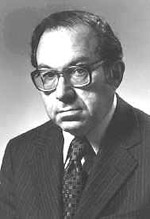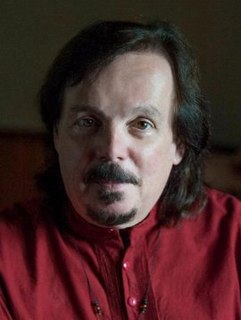Top 262 Oral Quotes & Sayings - Page 5
Explore popular Oral quotes.
Last updated on December 22, 2024.
John Lilly suggests whales are a culture maintained by oral traditions. Stories. The experience of an individual whale is valuable to the survival of its community. I think of my family stories-Mother's in particular-how much I need them now, how much I will need them later. It has been said when an individual dies, whole worlds die with them. The same could be said of each passing whale.
I think like a genius, I write like a distinguished author, and I speak like a child.... My hemmings and hawings over the telephone cause long-distance callers to switch from their native English to pathetic French. At parties, if I attempt to entertain people with a good story, I have to go back to every other sentence for oral erasures and inserts.... In these circumstances nobody should ask me to submit to an interview if by "interview" a chat between two normal human beings is implied.
The close-up has no equivalent in a narrative fashioned of words. Literature is totally lacking in any working method to enable it to isolate a single vastly enlarged detail in which one face comes forward to underline a state of mind or stress the importance of a single detail in comparison with the rest. As a narrative device, the ability to vary the distance between the camera and the object may be a small thing indeed, but it makes for a notable difference between cinema and oral or written narrative, in which the distance between language and image is always the same.
By the consultation of books, whether of dead or living authors, many temptations to petulance and opposition, which occur in oral conferences, are avoided. An author cannot obtrude his service unasked, nor can be often suspected of any malignant intention to insult his readers with his knowledge or his wit. Yet so prevalent is the habit of comparing ourselves with others, while they remain within the reach of our passions, that books are seldom read with complete impartiality, but by those from whom the writer is placed at such a distance that his life or death is indifferent.
I think we owe it to children to let them dig their knowledge, of whatever subject, for themselves out of the "fit" book; and this for two reasons: What a child digs for is his own possession; what is poured into his ear, like the idle song of a pleasant singer, floats out as lightly as it came in, and is rarely assimilated. I do not mean to say that the lecture and the oral lesson are without their uses; but these uses are, to give impulse and to order knowledge; and not to convey knowledge.
I think there's a great storytelling tradition in the restaurant business that tends to attract people with an oral tradition of bulls - ting and bollocking. Creative people, people for whom the 9-to-5 world is not attractive or impossible. It seems that way. There are a lot of stories in the business, and a lot of characters - and it seems to attract its share of artists and writers and people who hope to do something creative in their lives.
People like ourselves may see nothing wondrous in writing, but our anthropologists know how strange and magical it appears to a purely oral people - a conversation with no one and yet with everyone. What could be stranger than the silence one encounters when addressing a question to a text? What could be more metaphysically puzzling than addressing an unseen audience, as every writer of books must do? And correcting oneself because one knows that an unknown reader will disapprove or misunderstand?
The question now becomes about defining your terms. What is literature? Unless we allow it to encompass the oral tradition from which it grew, which means taking it back to Homer and beyond, it demands the written word - poetry and prose. [Bob] Dylan is no slouch at the written word, both in its own right, and transcribed from his lyrics, which have often been acclaimed as poetry and may well stand up as such. But that is not his métier.
The first principle, when you don't know anything about the subject of a thesis, is to let the candidate talk, nodding now and then with an ambiguous smile. He thinks you know, and are counting his mistakes, and it unnerves him... the second principle of conducting an oral, ... is to pretend ignorance, and ask for explanations of very simple points. Of course your ignorance is real, but the examinee thinks you are being subtle, and that he is making an ass of himself, and this rattles him.
Hey, folks, look at all the damage that Bill Clinton has done to feminism. First, oral sex is not sex now. You got a Lewinsky, it isn't sex. And sexual harassment, you know what it used to be? All you had to have for sexual harassment was for a superior in your office to use his power to have his way with you, no matter whether you wanted it or not. Now that's out the window. Because we can't, of course, have Bill Clinton said to have engaged in sexual harassment. No way. Not gonna happen.
The telling of stories, like singing and praying, would seem to be an almost ceremonial act, an ancient and necessary mode of speech that tends the earthly rootedness of human language. For narrated events always happen somewhere. And for an oral culture, that location is never merely incidental to those occurrences. The events belong, as it were, to the place, and to tell the story of those events is to let the place itself speak through the telling.
As the Nazi regime developed over the years, the whole structure of decision-making was changed. At first there were laws. Then there were decrees implementing laws. Then a law was made saying, ‘There shall be no laws.’ Then there were orders and directives that were written down, but still published in ministerial gazettes. Then there was government by announcement; orders appeared in newspapers. Then there were the quiet orders, the orders that were not published, that were within the bureaucracy, that were oral. And finally, there were no orders at all. Everybody knew what he had to do.
I tend to like the way poets form communities. Writing can be lonely after all. Modern life can be lonely. Poets do seem to be more social than fiction writers. This could be because of poetry's roots in the oral tradition - poetry is read aloud and even performed. I'm just speculating, of course. At any rate, because poets form these groups, they learn from one another. That is one of the best things about being a poet.
Paul's One Way Out is a fresh, intelligently arranged, and satisfyingly complete telling of the lengthy (and unlikely) history of the group that almost singlehandedly brought rock up to a level of jazz-like sophistication and virtuosity, introducing it as a medium worthy of the soloist's art. Oral histories can be tricky things: either penetrating, delivering information and backstories that get to the heart of how timeless music was made. Or too often, they lie flat on the page, a random retelling of repeated facts and reheated yarns. I'm happy to say that Paul's is in that first category.
The workman cut to the left, still laying on his horn, and roared around the drunkenly weaving limousine. He invited the driver of the limo to perform an illegal sex act on himself. To engage in oral congress with various rodents and birds. He articulated his own proposal that all persons of Negro blood return to their native continent. He expressed his sincere belief in the position the limo driver's soul would occupy in the afterlife. He finished by saying that he believed he had met the limodriver's mother in a New Orleans house of prostitution.
Though now we think of fairy tales as stories intended for very young children, this is a relatively modern idea. In the oral tradition, magical stories were enjoyed by listeners young and old alike, while literary fairy tales (including most of the tales that are best known today) were published primarily for adult readers until the 19th century.
Packed with fascinating personal perspective and testimony, Michael Takiffs A Complicated Man wholly justifies its title. The book is far more than a kaleidoscopic oral biography of President Bill Clinton. Aspect by aspect, it guides us through the struggles of postmodern America, as the most ambitious baby boomer of his generation seeks to modernize the Democratic Party-and, as in a Greek drama, is fated to be destroyed. Veritably, an all-American saga, with a cast of thousands-favorable and unfavorable.
Printed prose is historically a most peculiar, almost an aberrant way of telling stories, and by far the most inherently anesthetic: It is the only medium of art I can think of which appeals directly to none of our five senses. The oral and folk tradition in narrative made use of verse or live-voice dynamics, embellished by gesture and expression--a kind of rudimentary theater--as do the best raconteurs of all times. Commonly there was musical accompaniment as well: a kind of one-man theater-of-mixed-means.
According to the oral tradition of Witches, we were once the priests and priestesses of a peasant Pagan religion. Members of this secret sect met at night beneath the full moon, for these were the "misfits" and "outcasts" who did not fit into mainstream society. Little has changed over the centuries and the Witchcraft community still embraces individuals frequently rejected in mainstream society. These include gays, lesbians, transgendered individuals, and other people with the courage to live their lives authentically in accord with who they are inside their hearts, minds, and spirits.
For people who are coming out of an oral tradition, it is very exciting to get into reading and writing and it is quite interesting how frequently people want to write their own story. Sometimes it is straight history - this is how we came about, how our town was created, a lot of that kind of effort, as soon as literacy came. The first thing you wanted to do was to put something down about who you are or how you are related to you neighbors. Then the next stage would be the stories, the cultural part of the story: this is the kind of world our ancestors made or aspired to.
I met Mary [Hamill] in New York at my exhibition and when I told her about my oral history project she asked, "Would it be possible to incorporate visual art?" My sister stitches pillowcases, which led to Mary suggesting using cyanotype on them. I originally thought of the idea of pillowcases because when people get married, they have the bride and the groom lay their hands on each other's pillows while their relatives tie ribbons on their wrists. And then on the bed you usually have two pillows - one for yourself and one for your loved one - so when one is gone, one pillow remains.
News reports can overwhelm us. We can be appalled, we can sympathise. But what is hard to grasp is the sense that, at this moment, people are working, organising - not just at an executive level, but on the floor, in the warehouse. A man is packing a box of oral rehydration tablets; maternity kits are being prepared; education kits are being packed. And somewhere, tomorrow, those boxes will be unpacked and a child with life-threatening diarrhoea will be saved, a baby will be born in more hygienic circumstances, a girl will receive her first exercise book and her first pencil.





















